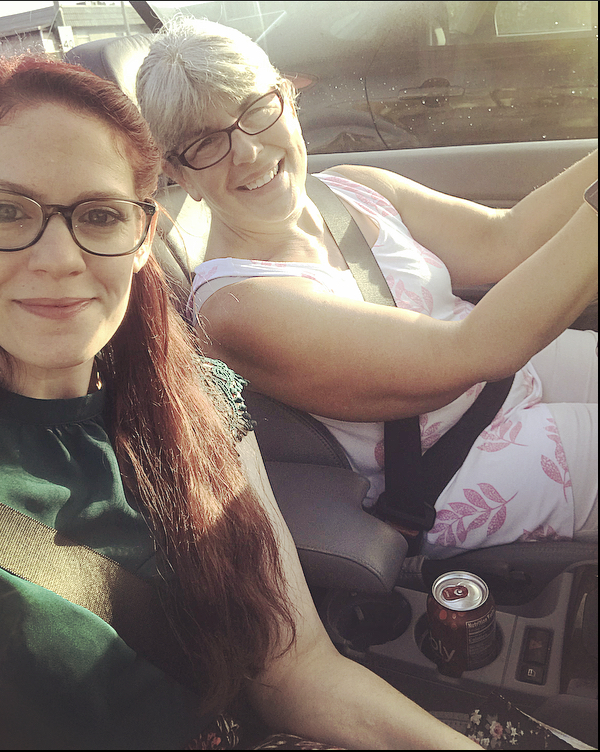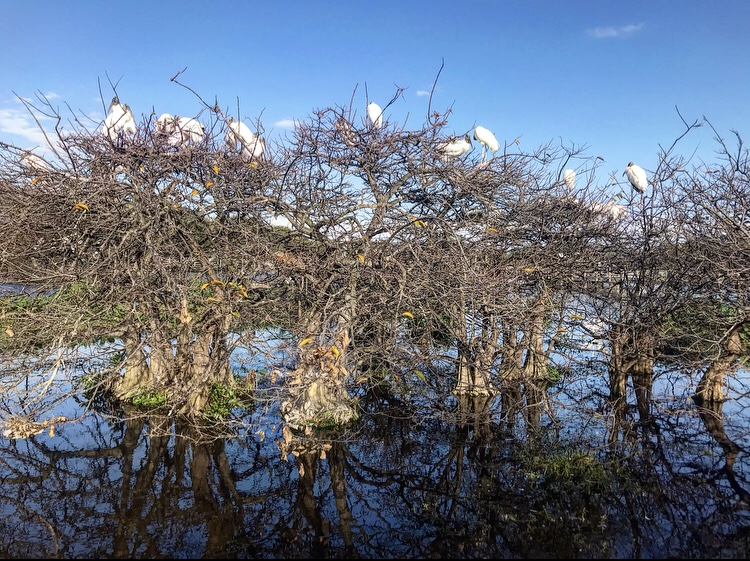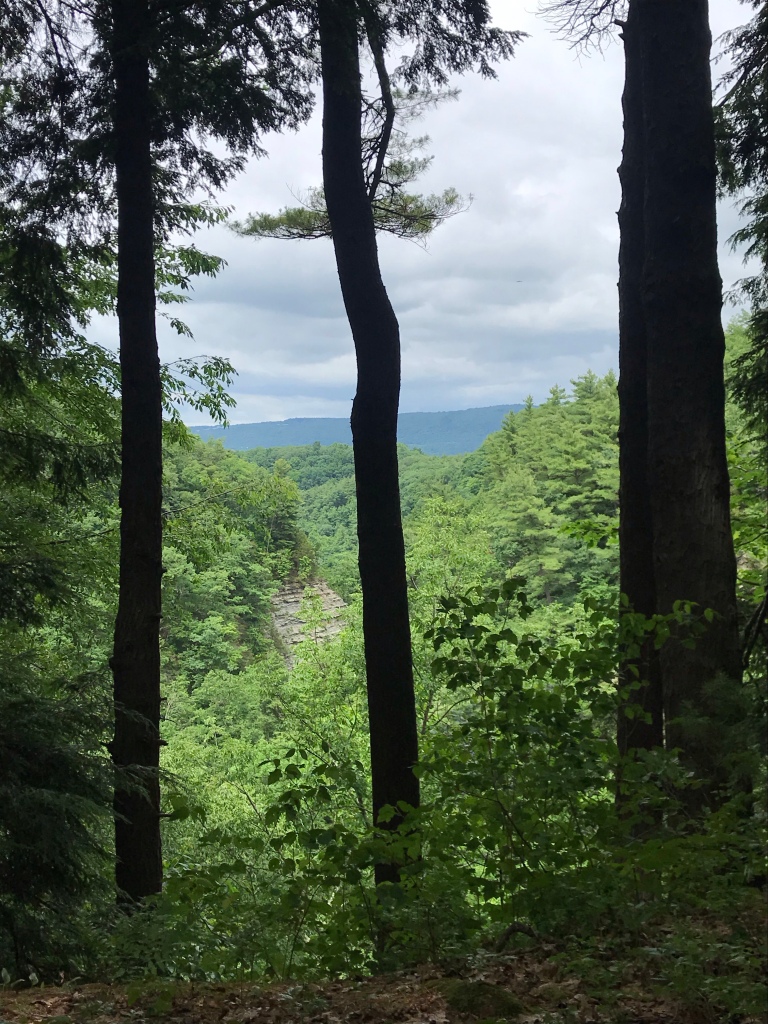The hardest part of writing a Masters Thesis is always thinking about the thesis. Is my topic fresh enough? Will I choke when I need to defend this? How did I even get this far? There is no certainty when writing a thesis, but I suppose that’s true of many things. One thing is certain, though: last time I was standing before this finish line, I let fear get the best of me and sat out on the bench for over a year–but I won’t let that happen again. I’m a different person now. That’s what my therapist tells me, anyway.
“I’m sure everyone experiences thesis anxiety,” Sam says. “Use it as motivation.” You see, dear reader, some people, like my husband, are good at radical acceptance, while others, like me, walk around with a churning mind which paralyzes us and makes us difficult to live with. I’m working on it.
Then I think to myself, you’re doing just fine. Stick to the schedule. All the research will connect soon. I head back to the laptop. I’ve gotten better at the work, life, family, thesis balance, but Toby doesn’t always understand.

I know he doesn’t understand because he ate the book Writing Your Dissertation in Fifteen Minutes a Day my Advisor gave me:

I don’t believe it can be done in fifteen minutes a day either, Toby.
Struggling to commit to one entry point, with a deadline looming, I told Sam, “I need to get out of this house. I can’t look at this thing anymore!” It’s like Nancy (mother-in-law) knew, and maybe her ears were ringing, because she invited me to visit. Motherly people have a sixth sense that I cannot fathom. Two weeks later, I book a flight and trade Buffalo’s snowy winter for Florida’s sunshine.

I hop on a plane in the midst of a global pandemic, because it’s what I have to do to stay sane and regroup. In my carry-on, I store my laptop, suggested reading and paranoia of not finishing my thesis in time. I wonder what others carry in their bags, where they’re headed and why. I don’t ask, but avoid eye contact. I’ve forgotten how to socialize with strangers. Inclement weather cancels multiple flights and it takes 12 hours to land in Delray Beach, instead of 3. First World problems, I know. Nancy picks me up in her convertible:

Nancy is a new “snowbird,” teaching grad classes remotely for UB. She and I first became close when we were planning my wedding, eight years ago, and I’m lucky to have her in my life. I always joke that I want to earn a PhD so when we hang out, we can introduce ourselves as “Dr. Cook Squared.” I wrote something corny like that as the opening line of the personal statement I may or may not ever send.
I settle in and Nancy asks if I want to learn to play Mahjong. I’m relived she doesn’t ask about school, and agree. “It’s an interesting mix of Rummy and Yatzee,” she says. I don’t know the rules of either.

The goal of the game is to get a mahjong, which consists of sorting all 14 of your tiles into two hands, while drawing and discarding each turn. I picture myself playing this with cute old men in a park, if we can ever get back to China.
Anxiety begins to set in when I see how many hands I could possibly create. I know I need to select two hands to build, but a lot can be done with 14 tiles, and I don’t want to select the wrong one. My face burns red.
Just when I thought I finally committed to a hand, I pick up a tile that could possibly create a better one. I glance at the directions again. Only this time, the pamphlet begins to bleed like ink does during a tattoo, and I can’t make out the words. It’ll take at least an hour to defrost my incoherent brain. Nancy looks excited to teach me the game. I swallow my heart. Does she know I’m totally panicking?
Nope. People rarely know, but I’m still always surprised. I know this because I ask her the next day, while walking on the beach, where I find Wilsooooon:

I think I should take him home to my office to curb my hollow loneliness, but I leave him behind and hand sanitize instead. Nancy asks about my thesis.
The waves roll in. It’s very windy and the beach is mostly deserted. I like when just the foam of a wave gently brushes my toes. It feels like flirting. This large body of water could sweep me away, but doesn’t. I recall pictures of crowded Florida beaches back when the pandemic first started. But now that the numbers are down, where have all the anti-maskers gone? Did they get sick of pushing back? Did the ocean sweep them away? We can’t get that lucky. . .
I tell Nancy my thesis is “fine.” I know she knows I’m lying. I cry.

“Your research is only a drop in the bucket. You don’t have to make a big splash!” she says. Even that quiet foam is part of the large ocean, I think to myself. “Some people fine-tune their argument in the throng of research. But, I know you. You need to fine-tune the thesis statement first.” We discuss all the possible entry points. She knows all the right questions to ask. I feel better.
The crippling effects of perfectionism isn’t new, for me. And neither is obsessing over my place in the world. You can read more about that in an earlier blog: An Existential Crisis on a Hiking Trail.
I build a sandman and send it to Sam:

Later, I watch these beautiful birds build their nests for a long while. They all work in pairs. Some couples collect pieces until they’re ready to build the nest. Other couples build as they gather. I’m glad Toby ate that stupid how-to book.

When we get back to the condo, Nancy asks for a Mahjong rematch. This time, I commit to two hands as quickly as I can. Sure, “better” hands are possible, but I’ve already committed so I discard. It makes all the difference and the game moves faster. I didn’t win, but I also didn’t freeze and panic. We laugh.

Then it hit me. You cannot win, if you don’t pick a hand. For if you don’t pick a hand, you don’t know what tiles to keep and discard.
The same is true for my thesis.
I am a bird that must build as I collect, but I was trying to collect before building because a book told me to do so. Do birds play Mahjong? Not literally, but probably.

On my flight home, I make an appointment with my Advisor, “I’m ready to commit to my topic. I’ve selected my Mahjong hand, so I know what tiles to hold and drop! I’m done collecting.” She already thinks I’m nuts, so I don’t hold back.
I arrived home almost two weeks ago and started writing immediately. There may be better arguments out there, but I’ve already committed to mine. It makes all the difference, and the game moves much faster. There’s no panic. I know exactly which tiles to hold and discard.
My paper is just a drop in the bucket, and that’s ok.
And my Advisor dubs the first 15 pages as “fine scholarship.”
Nothing is certain with this thesis. Nothing is certain in life. But I have two goals moving forward: keep my eye on my hand and have fun!
Thanks for introducing me to Mahjong, Nancy. Thanks for everything.










